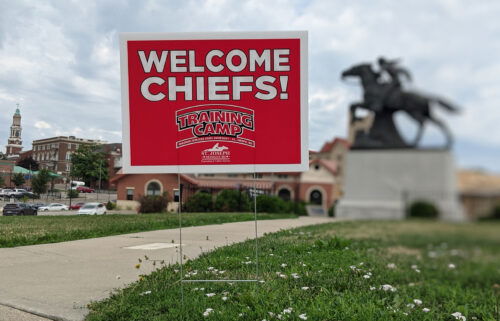Courts see through an industry money grab
By NewsPress Now
It came as no surprise that Missouri voters supported the legalization of recreational marijuana in 2022.
In the last two decades, public opinion has changed significantly on cannabis. Big Marijuana capitalized on this sentiment and rolled up victory after victory in campaigns for legalization across the country, including approval of Amendment 3 in Missouri.
But not everyone who supported Amendment 3 wants to smoke a joint or nibble on some edibles. That means a winning campaign formula required a strong appeal to those voters who weren’t interested in firing up but were ambivalent about criminalization.
A big sweetener in the Missouri campaign involved the 6% statewide tax, plus an optional 3% local tax, on recreational marijuana sales. The marijuana industry made sure to emphasize that this revenue would support veterans programs, public defenders and nonprofits providing drug treatment. Who wouldn’t support funding for veterans?
But just like those promises of casino revenue supporting education, Missourians are learning that things can change after the election. It turns out that the marijuana industry would like to retain a little bit more of the tax money that was supposed to bring all kinds of public benefits to local communities.
This harsh reality was exposed in two lawsuits, including one in Buchanan County, that challenged attempts to impose a “stacked” tax of 3% at the city and county levels. St. Joseph and Buchanan County voters approved a 3% local tax on marijuana sales after Amendment 3 went into effect, making for an effective tax rate of 12% in this jurisdiction.
The marijuana industry is now 0-for-2 in these lawsuits, prompting dark warnings of marijuana sales shifting to the illicit market because a 12% tax is just too high.
This is just smoke designed to cover up a brazen money grab. The marijuana industry wrote the amendment, including the part that referred to the ability of “local government” – not cities – to impose a 3% tax. The industry gave itself a sweet deal with a tax that’s on par with 15% in Colorado and considerably lower than 30% in Illinois, 37% in Washington state and 38% in California. (Not to mention the state’s 21% take on gaming revenue at casinos).
On Amendment 3, gullible voters ate it up. But now the marijuana industry, which presented voters with a constitutional amendment that can’t be changed, is subject to the scrutiny of judges who aren’t so easily swayed.
The marijuana trade loves to portray itself as just another viable industry that provides something that responsible adults want. That means you get to operate as a respectable business, but it also means taxes, lawyers and all that fun stuff.
Be careful what you wish for.




